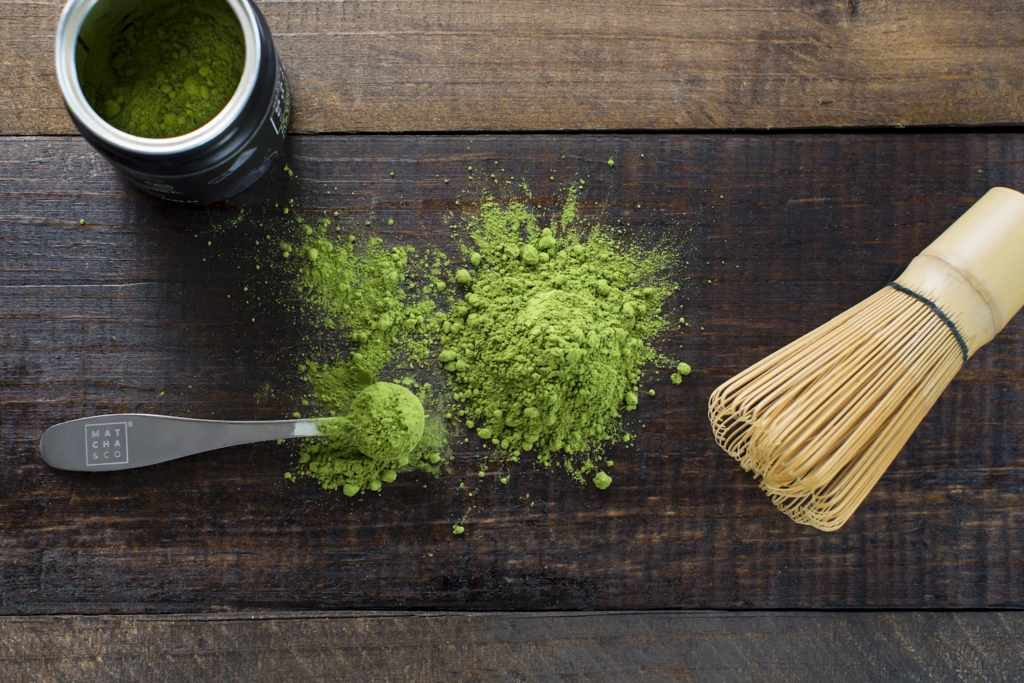The importance of a healthy gut may be surprising for many people, but the balance of good and bad bacteria that live in the gut, how smoothly the involuntary muscle contractions of digestion are moving, and the permeability of the intestinal lining are all factors that can ensure good health or lead to serious health consequences.
By the same token, from the cradle to the grave, we only have one skin, subject to all kinds of problems from acne to cancer. It’s important to achieve and maintain a good balance of nutrients, both consumed and applied topically, for lifelong healthy skin. People worldwide have loved all manner of tea for millennia, and for some cultures, tea is handled with great reverence. Perhaps part of the reason is because people have always intuitively known that certain types of tea consumed in moderation can be highly beneficial to overall health.
The Health Benefits of Green Tea

Green tea in particular has been found in some studies to have significant benefits specifically for the gut. It is high in catechins and polyphenols, substances which help maintain a healthy balance of gut microorganisms, improve gut motility (the movements of the stomach and intestines facilitate digestion and elimination) and reduce gut permeability. All this is important for several reasons.
- It’s important that bad bacteria be prevented from overgrowing the good ones, as an imbalance can lead to long-term and systemic health consequences.
- If gut motility is too fast or too slow, the body fails to absorb nutrients and either diarrhea or constipation may develop.
- If the thin lining of the gut becomes permeable, toxins from the gut can leak into the bloodstream, leading to health problems.
Studies have found that consuming green tea can preserve these important balances, reducing gut inflammation, improving motility and preserving the gut lining. All this can help prevent or alleviate the symptoms of miserable health problems like metabolic syndrome, irritable bowel syndrome and leaky gut syndrome.
Some nutritionists say that drinking one cup a day of green tea along with a healthy diet is better than going overboard drinking several cups a day or taking green tea supplements. Green tea contains caffeine, so too much can cause the unpleasant side effects of caffeine overuse, while drinking green tea in moderation can bring these valuable health benefits.
Read: Radiate Confidence: How Dressing Well Empowers Women
Matcha Green Tea May Be Even Better

Tea for drinking is made from an infusion of tea leaves brewed in water, while matcha is a specific variety of green tea whose leaves are ground and can be mixed into beverages or foods. Matcha green tea contains amino acids, catechins, polyphenols and dietary fiber, all of which have been shown to improve gut health.
Green Tea For Your Skin
Green tea specifically, whether imbibed, taken as a supplement or applied topically, can nourish your skin with polyphenols, antioxidants and vitamins. That one cup a day is also healthy for your skin, because those properties have been shown in many studies to prevent cancer and allow for gentler aging. A high-quality green tea extract may be used orally, coupled with a good topical green tea product, to treat active skin conditions with its anti-inflammatory properties.
Gut Health Affects the Whole Body

When the gut is off balance, a variety of systemic health disorders may arise. Digestive symptoms like diarrhea, constipation or alternating episodes of both; gas and bloating; and abdominal pain may be the first clue that something is amiss. Disorders like metabolic syndrome, irritable bowel syndrome, leaky gut syndrome, and small intestinal bacterial overgrowth (SIBO) share variations of these symptoms. What many people don’t know is that diabetes, heart disease, high blood pressure and even autism have been shown to be linked to gut health. Clean eating or drinking tea won’t magically make these disorders go away, but a cup a day as a new healthy habit may bring relief.
The Gut-Brain Axis
Medical science is increasingly accepting of the idea of a gut-brain axis: a physical connection between the gut and the brain. This means that anything that affects the gut affects the brain and vice-versa. This is why stress causes both headaches and digestive discomfort, and digestive disorders can cause cognitive problems like “brain fog,” and chronic headaches, and these are also common symptoms that go hand in hand with a digestive diagnosis.
Key Takeaways
The bottom line is that organic green tea is a proven gut-health powerhouse. Moderate consumption of either brewed green tea or powdered matcha green tea can lead to overall health benefits for the gut, which in turn can improve the health of the gut-brain axis. This may lead to wide-reaching health benefits for everyone, but especially for people who suffer from metabolic and digestive disorders. Enjoy fresh-brewed green tea, and look for purveyors who specialize in sustainable sourcing and trade practices, so you can benefit humanity and the planet as well as yourself.

